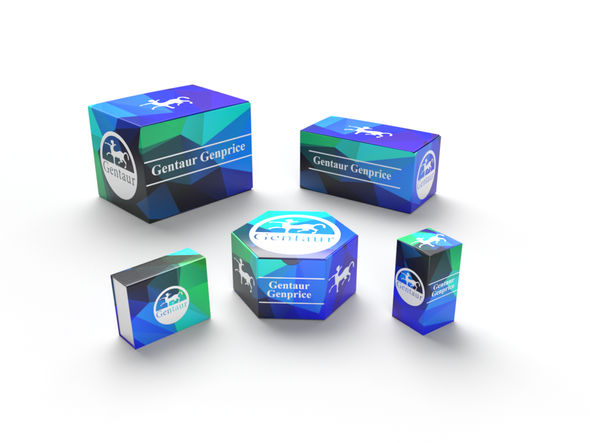Description
ARRB1 Antibody | 13-074 | Gentaur UK, US & Europe Distribution
Host: Rabbit
Reactivity: Human, Mouse, Rat
Homology: N/A
Immunogen: Recombinant fusion protein containing a sequence corresponding to amino acids 169-418 of human ARRB1 (NP_004032.2) .
Research Area: Cell Cycle, Neuroscience, Signal Transduction
Tested Application: WB, IHC, IF
Application: WB: 1:500 - 1:2000
IHC: 1:50 - 1:200
IF: 1:50 - 1:200
Specificiy: N/A
Positive Control 1: A-549
Positive Control 2: Mouse spleen
Positive Control 3: N/A
Positive Control 4: N/A
Positive Control 5: N/A
Positive Control 6: N/A
Molecular Weight: Observed: 43-54kDa
Validation: N/A
Isoform: N/A
Purification: Affinity purification
Clonality: Polyclonal
Clone: N/A
Isotype: IgG
Conjugate: Unconjugated
Physical State: Liquid
Buffer: PBS with 0.02% sodium azide, 50% glycerol, pH7.3.
Concentration: N/A
Storage Condition: Store at -20˚C. Avoid freeze / thaw cycles.
Alternate Name: Beta-arrestin-1, Arrestin beta-1, ARRB1, ARR1
User Note: Optimal dilutions for each application to be determined by the researcher.
BACKGROUND: Members of arrestin/beta-arrestin protein family are thought to participate in agonist-mediated desensitization of G-protein-coupled receptors and cause specific dampening of cellular responses to stimuli such as hormones, neurotransmitters, or sensory signals. Arrestin beta 1 is a cytosolic protein and acts as a cofactor in the beta-adrenergic receptor kinase (BARK) mediated desensitization of beta-adrenergic receptors. Besides the central nervous system, it is expressed at high levels in peripheral blood leukocytes, and thus the BARK/beta-arrestin system is believed to play a major role in regulating receptor-mediated immune functions. Alternatively spliced transcripts encoding different isoforms of arrestin beta 1 have been described.



![ARRB1 Antibody [F7C2] ARRB1 Antibody [F7C2]](https://cdn11.bigcommerce.com/s-1rdwiq712m/images/stencil/590x590/products/474547/480376/gentaur-genprice__26005.1661610467__29809.1661628092__75433.1661676199__77988.1661684280__64362.1661692443__02085.1662049603__45075.1662119302__91744.1662191540__21580.1662291419__76206.1663497311.png?c=1)


